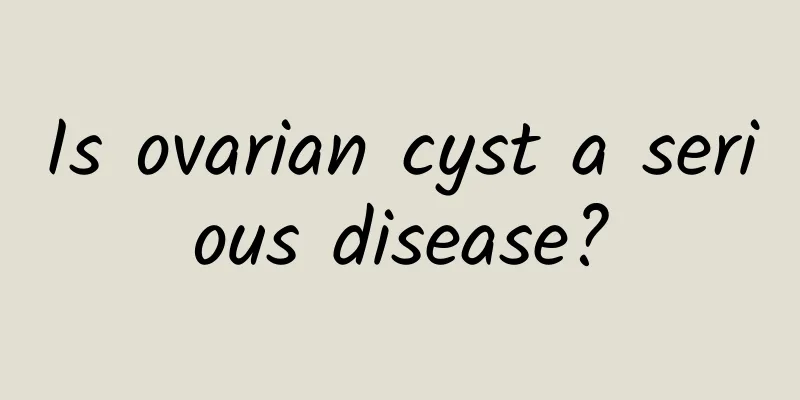What causes uterine cysts?

|
The causes of uterine cysts include genetics, environmental factors, physiological factors, trauma, and disease. Genetic susceptibility may increase the risk of disease, and long-term exposure to certain environmental pollutants or hormone imbalances may also induce cysts. Physiological factors such as hormone level fluctuations, abnormal menstrual cycles, and external factors such as pelvic trauma or surgery may all be triggers. Diseases such as endometriosis and polycystic ovary syndrome may also cause cysts. Treatments include medication, surgery, and lifestyle adjustments. 1. Genetic factors Uterine cysts may be related to genetic susceptibility, and women with a family history of similar diseases have a higher risk of the disease. Hereditary cysts are mostly benign, but there is still a possibility of developing into malignant ones. It is recommended that women with a family history undergo regular gynecological examinations for early detection and early treatment. 2. Environmental factors Long-term exposure to environmental pollutants such as industrial chemicals and pesticides may interfere with the endocrine system, leading to hormone imbalance and inducing uterine cysts. Bad lifestyle habits such as smoking, drinking, and excessive stress can also increase the risk of disease. Reducing exposure to harmful environments and improving lifestyles can help prevent cysts. 3. Physiological factors Physiological factors such as hormone level fluctuations, abnormal menstrual cycles, and ovarian dysfunction in women may lead to the formation of uterine cysts. Cysts are more likely to occur during special physiological stages such as puberty, pregnancy, and perimenopause. Maintaining a regular schedule, avoiding excessive fatigue, and exercising moderately can help regulate hormone levels. 4. Trauma Trauma or surgery in the pelvic area may damage the uterine tissue and form cysts. Pelvic inflammation and tissue adhesions after surgery may also be the cause. Regular gynecological examinations, especially pelvic ultrasound examinations, can detect and treat abnormalities in a timely manner. 5. Disease factors Diseases such as endometriosis, polycystic ovary syndrome, and uterine fibroids may lead to the formation of cysts. These diseases interfere with the normal function of the uterus and cause local tissue hyperplasia. Early diagnosis and treatment of the primary disease can effectively prevent the occurrence of cysts. Treatment: Drug treatment: Commonly used drugs include oral contraceptives such as norethindrone tablets, progesterone drugs such as medroxyprogesterone acetate, and gonadotropin-releasing hormone analogs such as leuprolide. These drugs mainly control the growth of cysts by regulating hormone levels. Surgical treatment: Common surgical procedures include laparoscopic cystectomy, laparotomy, and hysterectomy. The surgical method is selected according to the size and location of the cyst and the specific conditions of the patient. Minimally invasive surgery has a fast recovery and is suitable for young patients. Lifestyle adjustment: It is recommended to increase the intake of foods rich in vitamin E and antioxidants, such as nuts and dark green vegetables, and reduce the intake of high-sugar and high-fat foods. For exercise, you can choose low-intensity aerobic exercises such as yoga and walking, which can help improve pelvic blood circulation and relieve symptoms. Regular physical examinations are the key to preventing and early detection of uterine cysts. Women should pay attention to their gynecological health, seek medical examinations in a timely manner, and take appropriate treatment measures according to the doctor's advice to avoid delaying the disease. |
<<: What causes skin pain during menopause?
>>: How to treat cervical hypertrophy in women
Recommend
What are the common methods for checking dysmenorrhea?
In life, many women will experience dysmenorrhea....
Active Couch Potato Movement Changes Lives
For modern people who often say "I'm too...
Clinical symptoms of vulvar pruritus
We must actively learn and grasp the clinical man...
Diagnosis of ectopic pregnancy in the abdominal cavity
Ectopic pregnancy occurring in the abdominal cavi...
Lose 1/3 of my own weight through weight loss surgery and lose 30 kg, curing diabetes and polycystic ovary
Lose weight and save your health! Xiao An, 23 yea...
Can you get heatstroke in winter? 3 tips for first aid when you faint while running
Run for love, do what you can! A 32-year-old groo...
Pregnant women beware: What are the early symptoms of ectopic pregnancy?
Ectopic pregnancy is a very dangerous gynecologic...
How to relieve menstrual cramps
How to relieve dysmenorrhea? 1. Hyperthermia When...
Cost of nursing center for patients with cervical precancer
Cervical precancerous lesions are a gynecological...
The most important things to note after abortion
Among the many gynecological surgeries, abortion ...
What is the best way to treat habitual miscarriage?
Once diagnosed with habitual abortion, patients c...
What to do if I have uterine fibroids on the anterior wall?
Uterine fibroids are a gynecological disease with...
Bad living habits can lead to adnexitis
Chronic adnexitis is a condition that gynecologis...
What is the problem with female friends suffering from adnexitis?
What is the problem with female friends suffering...
Is cervicitis intrauterine adhesion?
Cervicitis is not intrauterine adhesion. They are...









